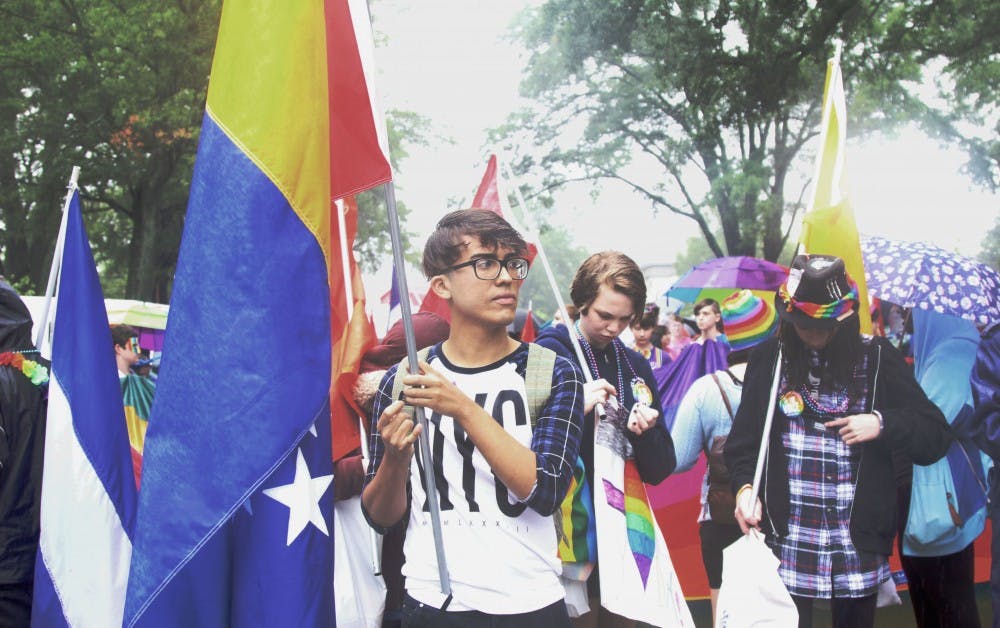The North Carolina Pride Parade and Festival took place Saturday on Duke’s East Campus to promote and celebrate LGBTQ pride.
The 31st annual festival was the highlight of a pride-filled weekend in Durham, Chapel Hill and Raleigh. Events included a parade on West Main Street—which featured floats, including one built by Duke’s Center for Sexual and Gender Diversity—and the third annual 5K run, in addition to food trucks and tents selling rainbow-colored apparel. Festival attendees wore brightly colored outfits and recited chants, celebrating the June Supreme Court decision to legalize same-sex marriage but also noting that there is more work to be done.
“Last year, the focus was on marriage equality primarily,” said Cara Marel, a member of the Human Rights Campaign, which works to achieve equality for LGBTQ Americans. “Marriage was a great thing for us to acquire, but we’re not slowing down.”
She noted that her organization is working to support statewide and nationwide initiatives that promote LGBTQ-inclusive policies in workplaces and schools.
Senior Tyler Nelson, president of Blue Devils United, said the main purpose of the festival is to build a social community. He noted that the visibility of the LBGTQ cause, brought to the forefront by the festival, allows the community to set an agenda for future goals.
“We want to expand what Duke knows as gay or queer,” he said. “This year, we have more diversity than ever...we have people identifying with brand new identity markers, which is both empowering and awesome.”
Although the festival brought together LGBTQ individuals in a celebration of pride, attendees said many challenges remain for the community to overcome.
“It’s still hard for people to change their [last] names when they get married,” said Leah Sanchez, co-owner of Lez Get Married, a wedding company for LGBTQ couples.
Mental illness is also a problem for LGBTQ youth, explained Chris Tackett and Dana Cea, representatives of the American Foundation for Suicide Prevention. They noted that there is a higher prevalence of mental illness among the LGBTQ community. According to the National Alliance on Mental Illness, gay, lesbian and bisexual groups are about two and a half times more likely than heterosexual men and women to have a mental health disorder.
The intersection of religion and LGBTQ pride also impacted the festival. Several protesters picketed on West Main Street as the parade was beginning.
“We love these people enough to warn them that they’re celebrating a sin that will put them into hell for all of eternity,” said Buddy Fisher, a street preacher.
But the number of protesters at the event has diminished over the years, noted Tony Davidson—an employee at the LGBTQ nightclub Legends in Raleigh.
One focus for Blue Devils United this year will be on how religion often comes into conflict with queer identities, Nelson said.
“I think it’s really sad when someone has to hide their queerness to fit into religion, but I also think it’s really sad that someone has to lose their religion to express their queerness,” he said.
He added that he thinks Duke students can alter some people’s negative perceptions of the LGBTQ community.
“We as Duke students really have the power to change [that],” he said.
Get The Chronicle straight to your inbox
Signup for our weekly newsletter. Cancel at any time.

